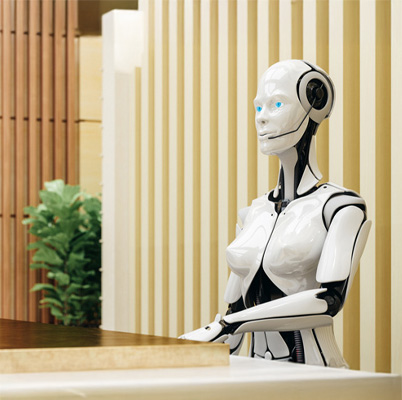The healthcare industry has long recognised the benefits of technology, with computer-aided drug discovery dating back to the 1960s1. Many pharma companies are already exploring the application of AI, so it’s no surprise to see that the NHS is also looking to get onboard with the AI revolution.
Recent news suggests that robots are to be used to “modernise the NHS long term” in order to free up NHS staff. Under Rishi Sunak’s 15-year workforce strategy, the “15-year blueprint will use ‘latest innovations’ to reduce health service’s reliance on foreign-trained medics,” says The Prime Minister.2
The strategy has been “Made by NHS, backed by Government” to “ensure the NHS is fit for the future”. The 15 year plan includes tens of thousands A-level students to start training as apprentice HCPs on the wards when they leave school, doubling in medical school places, increasing nurse training and using cutting-edge technology to take pressure from NHS staff.
The Health Secretary, Steve Barclay, intends for the 15-year strategy to maximise productivity and patient care by harnessing the potential of technological advances, commenting that “we will deliver the biggest expansion of staff training in NHS history, retain more talented people and harness cutting-edge technology.“
Introducing robot receptionists
The idea behind robot receptionists is clear; they can help reduce the workload of medical secretaries by flagging test results, transcribing doctors notes, scheduling appointments and surgeries, thus freeing up NHS staff for more pressing tasks that require the ‘human’ touch.
Naturally there is concern that the introduction of robot receptionists will mark the demise of human jobs, but the reality is they can actually help create optimal opportunities for the employment of more HCPs, rather than less. AI is able to process larger amounts of data and is able to identify patterns that are not obvious to humans.
A good example of this is where AI is helping to make theatres available for an extra two hours a day, due to robots analysing staff availability, patient information and operating patterns in order to maximise the use of time of the operating rooms.3
The numbers are certainly promising. The NHS trust’s deputy director of ICT, Darren Atkins, explained that “within the first three months of the programme, the trust had saved more than 500 hours of medical secretaries’ time”4 through the use of only three robot assistants. The first stage of each GP referral has also been reduced from 15-20 minutes to only 5 minutes. Administration costs are predicted to decrease by 30 per cent3 and booking processes will be 10 times faster than human receptionists.3
With such an impact made through only three robot assistants, the potential that robots have to reshape administration within the NHS as we know it is immense.
Ethical challenges
There are of course a number of ethical challenges to consider in the use of AI. From a privacy and security perspective, the machines analysing patients’ data pose a threat of exposing or misusing data. This concern around data protection could have a massive impact on perceived trust in the NHS. There is also the issue of accountability; it is clear when decisions are made by humans who are responsible for the outcomes, however with the use of robots could lead for an uncertainty with who is accountable. Those who created the algorithms? The developers?
Ultimately, robots can only follow instructions, they cannot take account for context, mitigating circumstances or issues of morality, therefore there is a real risk that decisions could be made that create ethical dilemmas.
An opportunity for Pharma
Pharma companies are well aware that a personalised human touch is critical to maintaining optimal patient care. This is why they remain focused on ensuring that HCPs around the globe are equipped with the right information to help make the best clinical decisions for the patients they care for.
There is no denying that the introduction of robot receptions presents several opportunities for the pharma industry. Firstly, it will be important to determine what information is being ‘loaded’ onto the robot receptionist and by who? It is vital that pharma companies are involved in the data gathering process so that any decisions which are being passed to AI to determine are able to use the most up to date, accurate and reliable source information.
Secondly, by freeing up staff from more menial tasks, there will be an opportunity for varying levels of medical staff to spend time improving their general medical knowledge and understanding through online learning. From taking short courses, to catching up on conference notes and discussing key issues on community forums, there are a wealth of resources available for HCP’s to access at the click of a button on platforms such as; Doctors.net.uk.
There is no denying that the introduction of robot receptionists will present a number of challenges, but what is clear is that the adoption of AI within the NHS could pave the way for a much more informed, engaged and educated medical workforce, which can only lead to better standards of care and improved patient outcomes.
Sources:



